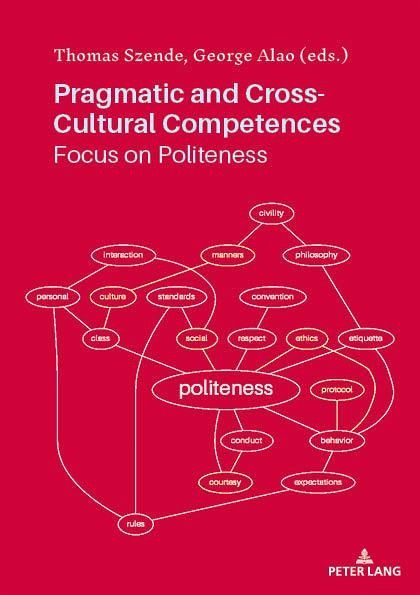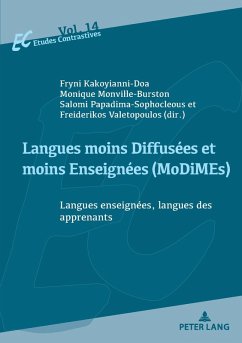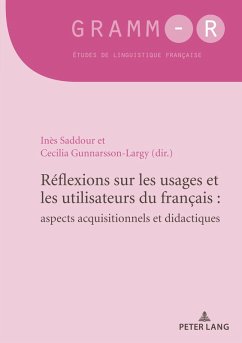
Pragmatic and Cross-Cultural Competences (eBook, ePUB)
Focus on Politeness
Versandkostenfrei!
Sofort per Download lieferbar
Statt: 42,80 €**
36,95 €
inkl. MwSt.
**Preis der gedruckten Ausgabe (Gebundenes Buch)
Alle Infos zum eBook verschenkenWeitere Ausgaben:

PAYBACK Punkte
18 °P sammeln!
The L2 speaker is able to function in the target culture only when s/he is able to understand, anticipate and produce the choices that the said society makes. Being polite therefore means: knowing how to draw on the conventions of a society, taking into account the expectations of an interlocutor regarding social relations at any given point, and is based on the appropriate language register to the communication situation; being able to balance standard and non-standard features and to adjust one's speech by moving it towards more or less familiarity, or formality. The learner therefore needs ...
The L2 speaker is able to function in the target culture only when s/he is able to understand, anticipate and produce the choices that the said society makes. Being polite therefore means: knowing how to draw on the conventions of a society, taking into account the expectations of an interlocutor regarding social relations at any given point, and is based on the appropriate language register to the communication situation; being able to balance standard and non-standard features and to adjust one's speech by moving it towards more or less familiarity, or formality. The learner therefore needs to be aware of the pragmatic flexibility of speakers - native and experts - who move from one register to another and juggle between respect and caution, first degree meaning and irony, exuberance and excess, with difference in levels, nature and degrees of politeness.
This volume contains contributions whose theoretical reflections, field work experiences and authentic data from diverse African, Asian and European languages, literatures and cultures as well as a variety of corpora shed new light on politeness as a central phenomenon in pragmatics, and on what is at stake when teaching or learning the subject. It also opens up a conceptual dialogue with a whole range of domains likely to enrich the debate: sociolinguistics, literature, translation studies, semiotics, cultural anthropology, social psychology, etc.
This volume contains contributions whose theoretical reflections, field work experiences and authentic data from diverse African, Asian and European languages, literatures and cultures as well as a variety of corpora shed new light on politeness as a central phenomenon in pragmatics, and on what is at stake when teaching or learning the subject. It also opens up a conceptual dialogue with a whole range of domains likely to enrich the debate: sociolinguistics, literature, translation studies, semiotics, cultural anthropology, social psychology, etc.
Dieser Download kann aus rechtlichen Gründen nur mit Rechnungsadresse in A, D ausgeliefert werden.













